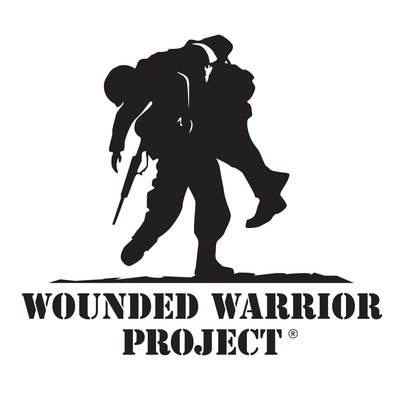CUTTING EDGE TECHNOLOGY CAN HELP VETERANS HEAL FROM POST-TRAUMATIC STRESS
LEARN ABOUT WOUNDED WARRIOR PROJECT’S SUPPORT OF CUTTING-EDGE PTSD TREATMENTS
JACKSONVILLE, Fla., June 8, 2023 /PRNewswire/ —
BACKGROUND:
Technology is evolving mental health care. From virtual reality to artificial intelligence, the use of technology can improve how we heal our mind, particularly after experiencing something traumatic. According to the National Center for PTSD, about 6 out of every 100 people will experience post-traumatic stress disorder (PTSD) at some point in their lives. PTSD can be more prevalent in industries where people are regularly exposed to traumatic events, including medical professions, law enforcement, or the military.
Experience the full interactive Multichannel News Release here: https://www.multivu.com/players/English/9081351-wounded-warrior-project-support-cutting-edge-ptsd-treatments/
PTSD treatment has improved due to technological innovation, and Wounded Warrior Project® is one of the organizations helping fuel some of this change. The national non-profit, which supports injured veterans who served after 9/11, created its Warrior Care Network® of academic medical centers in 2015 to accelerate treatment and research for PTSD. Why are they so invested? Because PTSD is one of the most common wounds of war. According to Wounded Warrior Project’s Annual Warrior Survey:
- Three in four veterans registered with Wounded Warrior Project reported living with PTSD in 2022.
- PTSD is the second most common health issue reported by veterans registered with Wounded Warrior Project.
- Common symptoms of PTSD include intrusive thoughts, irritability, and hypervigilance.
As we enter PTSD Awareness Month in June, Wounded Warrior Project’s Dr. Erin Fletcher, Psy.D. talked about some of the ways technology is being used for PTSD care and the current research into whether artificial intelligence can help predict how well certain treatments will work. She was joined by veteran Tonya Oxendine whose own recovery from PTSD involved virtual reality therapy through Warrior Care Network.
For more information, please visit www.woundedwarriorproject.org/combatstigma
MORE ABOUT ERIN FLETCHER PSY. D.:
Erin Fletcher, Psy.D. serves as the Director of Wounded Warrior Project’s Warrior Care Network. Erin collaborates with the four Academic Medical Centers that compromise WWP’s Warrior Care Network to foster Network alignment regarding program implementation and delivery. Warriors taking part in Warrior Care Network receive a year’s worth of mental health care during a 2-week intensive outpatient program, using evidenced-based treatments with alternative therapies. Erin has over 15 years of mental health experience working with adults in a variety of treatment settings. Prior to working for Wounded Warrior Project, Erin served as the Clinical Director of an intensive outpatient treatment program for adults with anxiety disorders.
MORE ABOUT TONYA OXENDINE:
Tonya Oxendine joined the United States Army a year after finishing high school — mostly, she says, to run away from a very difficult childhood and abusive family. Unfortunately, it turned out she left one abusive situation only to find another. She was raped in basic training and endured years of sexual harassment and assault thereafter. The abuse continued on and off until she’d attained a high enough rank (Command Sergeant Major) that no one could get away with it anymore – about halfway through her 30-year military career. Yet instead of seeking help, she felt she had to remain silent and keep the pain and emotions bottled up inside. Tonya felt honored to be given the responsibility to serve her country and she didn’t want to jeopardize that. But eventually, during Tonya’s last deployment in Afghanistan, all the pent-up emotions took a toll on her mentally. But it would be two more years before Tonya finally sought help for her post-traumatic stress disorder (PTSD) and the severe depression and anxiety she was experiencing. She received mental health treatment at Emory Healthcare — part of WWP’s Warrior Care Network — which helps veterans like Tonya who are living with PTSD.
Produced for: Wounded Warrior Project

![]() View original content:https://www.prnewswire.com/news-releases/cutting-edge-technology-can-help-veterans-heal-from-post-traumatic-stress-301845920.html
View original content:https://www.prnewswire.com/news-releases/cutting-edge-technology-can-help-veterans-heal-from-post-traumatic-stress-301845920.html
SOURCE Wounded Warrior Project



 Private Internet Access gives you unparalleled access to thousands
of next-gen servers in over 83 countries and each US state. Your
VPN experience will always be fast, smooth, and reliable.
Private Internet Access gives you unparalleled access to thousands
of next-gen servers in over 83 countries and each US state. Your
VPN experience will always be fast, smooth, and reliable.